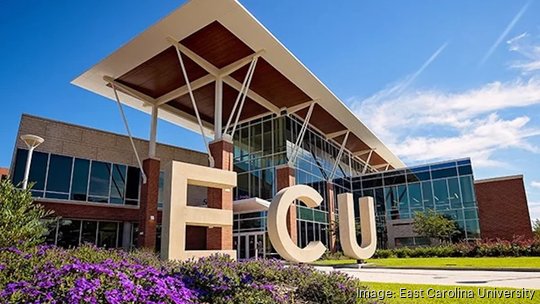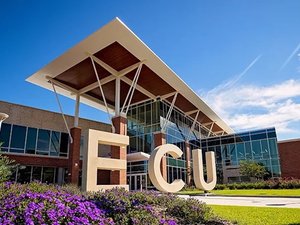
A nonprofit backed by state funding is directing about $5 million to eight university research projects through a pilot grant program.
NCInnovation, which is focused on advancing research at North Carolina universities into commercial opportunities, plans to distribute $5.2 million to researchers at seven different schools. The projects include technologies aimed at lithium refining, vaccine development and drinking water purification, among others.
The nonprofit's Board of Directors, chaired by former Truist Financial CEO Kelly King, approved the set of projects during a closed session of its Wednesday meeting. The projects are led by researchers at Appalachian State University, East Carolina University, N.C. A&T University, UNC-Charlotte, UNC-Greensboro, UNC-Wilmington and Western Carolina University.
NCInnovation in April began soliciting proposals for this pilot grant program, which it will use to test its processes before scaling the effort and initiating a statewide request for proposals later this year. For this pilot program, NCInnovation focused on projects that were more advanced, NCInnovation spokesperson Pat Ryan said.
The organization received about 25 to 30 applications, which were put forward by university leaders, Ryan said. This was not a fully open process, as NCInnovation wanted to keep the pilot program to a smaller, more manageable group. The broader request for proposal later this year will be open to researchers at public universities throughout the state.
Funding for NCInnovation's grant programs comes from interest earned on an endowment fund established last year by state law. The state budget lawmakers approved last year included plans to direct two tranches of $250 million to NCInnovation to establish this endowment, with one in each fiscal years 2023-24 and 2024-25.
NCInnovation in January received the first tranche of funding after certifying in December that it had completed all necessary legislative requirements. CEO Bennet Waters in April told Triangle Business Journal that the nonprofit is on track to complete all necessary requirements to receive the second tranche of funding when it becomes available July 1.
The nonprofit also recently secured private financial commitments of $25 million, which was required by law. This funding — which comes from companies like SAS and Martin Marietta and financial institutions like Pinnacle Financial Partners and Truist — supports NCInnovation's administration and overhead so that it can direct all of the endowment interest and income to its grant programs.
Initial funding for the research projects will be sent to grant recipients after contracts are executed and NCInnovation provides formal notification to its government partners. The selected researchers will receive the funding in tranches based on meeting specific project milestones.
NCInnovation has not yet disclosed the amount it has awarded to each recipient as the grant agreements need to first be finalized and signed. The funding will be directed to researchers focusing on various health, energy and environmental challenges.
This includes UNC-Greensboro professor Hemali Rathnayake, who is leading the development of a cost-effective and efficient process that converts lithium into battery-grade lithium carbonate, and Rukiyah T. Van Dross-Anderson, an associate professor of pharmacology at ECU who is leading the development of a cancer immunotherapy for melanoma patients.
NCInnovation is focused on regions outside the Triangle, where the major research universities at Duke, N.C. State and UNC-Chapel Hill have driven success not seen in other parts of the state. The organization last year established four regional hubs based in East Carolina, N.C. A&T, Western Carolina University and UNC Charlotte.
Any companies that are formed from research that NCInnovation funds are required by state law to maintain their headquarters in North Carolina for at least five years.
Aside from the lithium and melanoma projects, here is a look at the other projects that NCInnovation has selected:
- Rahman Tashakkori at Appalachian State is developing a system intended to decrease honeybee hive die-off and increase hive production.
- Kristen Dellinger at N.C. A&T is leading the development of a novel method of carrying therapeutic agents across the blood-brain barrier, improving therapy delivery.
- Sukumar Kamalasadan at Charlotte is leading a project focused on power grid efficiency.
- Jordan Poler at Charlotte is developing materials that more effectively remove compounds from drinking water that are prohibited by the U.S. Environmental Protection Agency.
- Ying Wang at UNC-Wilmington is developing a vaccine platform design to result in a universal and longer-lasting flu vaccine.
- Brian Byrd at Western Carolina is working on a device that can be used for tracking mosquito-borne diseases.


